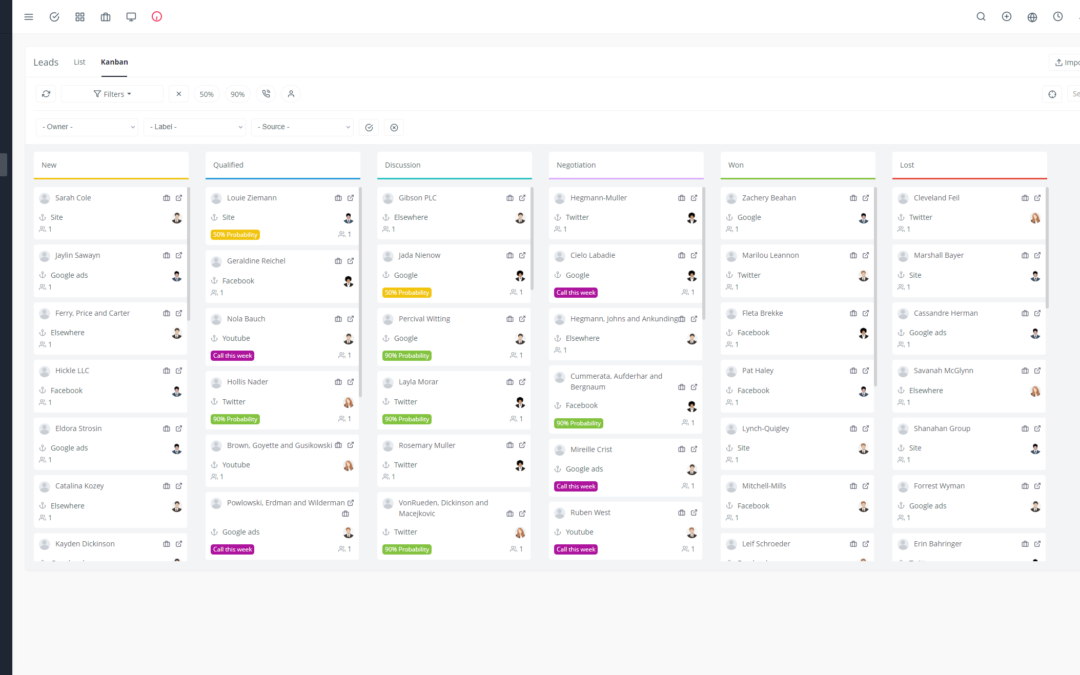Introduction: 📈
In today’s world, data is the engine of business growth and success. Yoneos, your project management system, is a valuable repository of crucial information for your organization.
Effectively managing your data in Yoneos means ensuring its integrity, security, and accessibility, allowing you to optimize your processes, make informed decisions, and propel your business to new heights.
Understanding Different Types of Data in Yoneos: 📊
Before implementing a data management strategy, it’s essential to understand the different types of data you store in Yoneos:
Project Data: 🗓️ Deadlines, tasks, resources, budget, progress.
Client Data: 👤 Contact information, project history, notes.
Billing Data: 🧾 Invoices, payments, discounts.
Team Data: 👥 User profiles, permissions, roles.
Establishing a Data Backup Strategy: 🛡️
Regularly backing up your data is essential to protect yourself against hardware failures, human errors, or cyberattacks.
Define a backup frequency that suits your business needs.
Implement automated backup procedures to save time and prevent oversights.
Store your backups on a physical medium or in the cloud for maximum protection.
Choosing the Right Database Management System: 🗄️
Yoneos uses a database to store your information. It’s important to choose a database management system (DBMS) that suits your needs and the size of your business.
For Small Businesses: An open-source DBMS like MySQL or PostgreSQL can be a cost-effective and efficient solution.
For Large Businesses: A professional DBMS like Oracle or SQL Server offers advanced performance and features.
Implementing Security Protocols to Protect Data: 🔐
The security of your data is paramount.
Implement strong and unique passwords for each user.
Enable two-factor authentication to enhance account security.
Control database access based on roles and permissions.
Use antivirus software and a firewall to protect your system from attacks.
Managing Access and Permissions: 🔑
Ensure that each user has only the permissions necessary to perform their job.
Define roles and user groups to manage authorizations effectively.
Track user activity to detect any unauthorized access attempts.
Conduct regular audits to verify permission integrity.
Automating Data Management Tasks: 🤖
Automation allows you to save time and reduce errors in managing your data.
Use scripts to automate data backup, cleanup, and export tasks.
Explore the possibilities offered by Yoneos APIs to integrate automation tools.
Cleaning and Organizing Data Regularly: 🧹
Clean and organized data is essential for effective decision-making.
Delete unnecessary and outdated data.
Standardize data formats to ensure consistency.
Use data cleansing and validation tools to ensure data quality.
Using Analytics and Reporting Tools: 📈
Raw data is only useful if you can analyze and interpret it.
Use the analytics tools built into Yoneos or external solutions to extract relevant insights.
Create custom reports to track project performance, customer satisfaction, and team productivity.
Monitoring Data Integrity: 🕵️
It’s important to monitor your data integrity to detect any problems or anomalies.
Use database monitoring tools to identify errors and anomalies.
Set up alerts to be notified in case of any issues.
Evaluating and Improving Data Management Processes: 🔄
Regularly evaluating your data management processes is essential to identify weaknesses and opportunities for improvement.
Establish performance indicators to track the efficiency of your processes.
Collect user feedback to identify needs and frustrations.
Establishing Data Recovery Procedures: 🆘
In case of data loss, it’s crucial to be able to restore it quickly and efficiently.
Establish clear and concise data recovery procedures.
Regularly test your recovery procedures to ensure they are effective.
Knowing Data Protection Laws and Regulations: ⚖️
Comply with the laws and regulations in force in your country regarding data protection.
Familiarize yourself with GDPR (General Data Protection Regulation) and other applicable laws.
Implement measures to ensure the confidentiality and security of personal data.
Training Users on Data Management Best Practices: 👨🏫
Ensure that all Yoneos users are aware of data management best practices.
Organize training sessions and workshops to raise awareness.
Provide resources and documents to help them put best practices into action.
Integrating Data Management into Business Processes: ⚙️
Data management should not be an isolated activity. It should be integrated into all your business processes.
Use Yoneos data to make strategic and operational decisions.
Optimize your processes based on insights derived from data.
Utilizing Data Management Features Offered by Yoneos: 💡
Yoneos offers numerous features to facilitate data management.
Data Exports and Imports: Export your data to different formats and import it into Yoneos.
Advanced Filters and Searches: Easily filter and search your data to find the information you need.
*Reports and Dashboards: Create custom reports and dashboards to track project performance and business activity.
Optimizing Database Performance: 🚀
A high-performing database is essential for smooth use of Yoneos.
Optimize your database structure to improve performance.
Use monitoring tools to identify and resolve performance issues.
Regularly update your DBMS to benefit from the latest improvements.
Reducing Data Loss Risks: 📉
Well-managed data reduces the risks of data loss.
Implement regular backups and recovery procedures.
Ensure your security systems are up-to-date.
Raise awareness among users about data management best practices.
Improving Data Quality and Reliability: 📈
Quality data enables you to make more informed decisions.
Implement data validation and cleansing processes.
Use data analysis tools to identify errors and inconsistencies.
Foster a culture of data quality within your organization.
Leveraging Data to Make Better Decisions: 🧠
Data is a valuable asset for your business.
Use data to identify market trends, growth opportunities, and potential threats.
Make informed decisions based on factual data.
Conclusion: 🌟
Effective data management in Yoneos is a crucial investment for your business. By following these best practices, you can improve the security, integrity, and accessibility of your data, allowing you to optimize your processes, make better decisions, and propel your business toward success.

